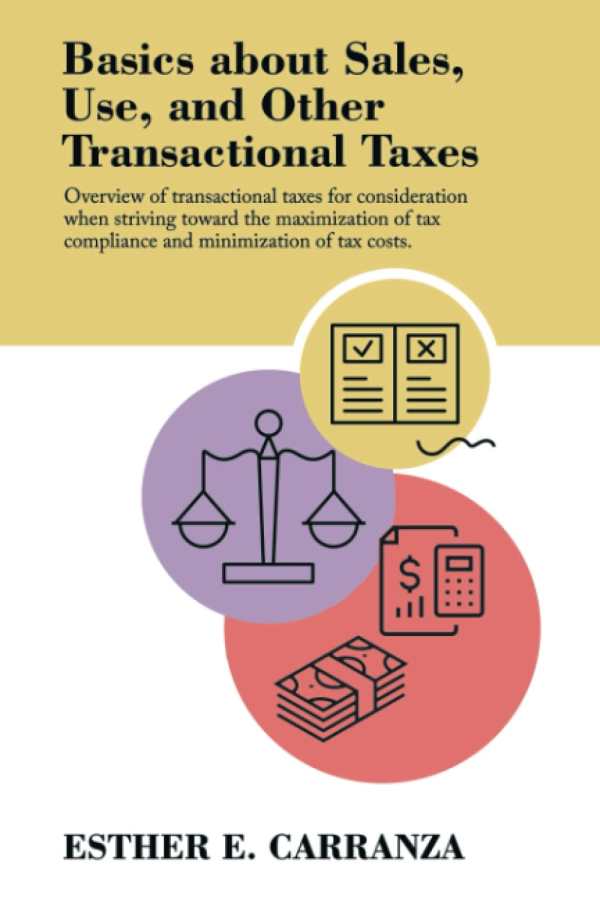Basics about Sales, Use, and Other Transactional Taxes
Overview of Transactional Taxes for Consideration When Striving Toward the Maximization of Tax Compliance and Minimization of Tax Costs
Basics about Sales, Use, and Other Transactional Taxes is a practical and informative guide for individual consumers and businesses hoping to be proactive about tax compliance.
Esther E. Carranza’s business primer details the ins and outs of a pervasive, under-the-radar taxation system in consumer-friendly language.
Carranza explains that transactional taxes are the taxes levied on sales, rentals, and other everyday transactions, ranging from vice taxes on products like alcohol and fast food to fees charged to enter parks or dispose of particular types of waste. And in the process of introducing the practical aspects of this branch of taxation, the book also deviates from its central path to cover three other main tax categories—income, ownership, and transference taxes—and the various authorities that can levy taxes, alongside naming practices that all taxpayers should know—a quite broad swath of tax information, though made navigable thanks to useful graphs and straightforward sentences.
But in aiming to help its audience achieve maximum tax compliance and minimum tax costs while addressing all of their tax responsibilities, the text becomes too aspirational. Indeed, it acknowledges that its modeled goal is near impossible to reach: “The possibility of achieving 100 percent tax compliance is a daunting task.” Still, it works hard to impart specialized knowledge of tax authority, applicable tax laws, and detailed transaction analyses. Sensible sections and subsections make its dense chapters appear more approachable, even for those with little prior knowledge of the topics at hand. Further, it moves from basic definitions to complex transactional analyses in a measured way.
The book includes discrete sections designed for different classes of taxpayers; at various points, it both explains the steps that go into a successful in-house tax audit and outlines the process by which a regular taxpayer can decide whether or not they are entitled to a tax exemption. It does an able job of distinguishing between the practical concepts of tax compliance and impenetrable technical debates. And the writing is helpfully free of frills. The supplemental material—including three appendices and an array of photocopied tax forms with brief accompanying explanations—makes its pages an even more useful tool for understanding how tax authorities request information, how such information is compiled and processed, and how its audience might implement its advice.
Basics about Sales, Use, and Other Transactional Taxes is methodical when it comes to explaining various forms of taxation, compliance, and exemptions.
Reviewed by
Willem Marx
Disclosure: This article is not an endorsement, but a review. The publisher of this book provided free copies of the book and paid a small fee to have their book reviewed by a professional reviewer. Foreword Reviews and Clarion Reviews make no guarantee that the publisher will receive a positive review. Foreword Magazine, Inc. is disclosing this in accordance with the Federal Trade Commission’s 16 CFR, Part 255.

